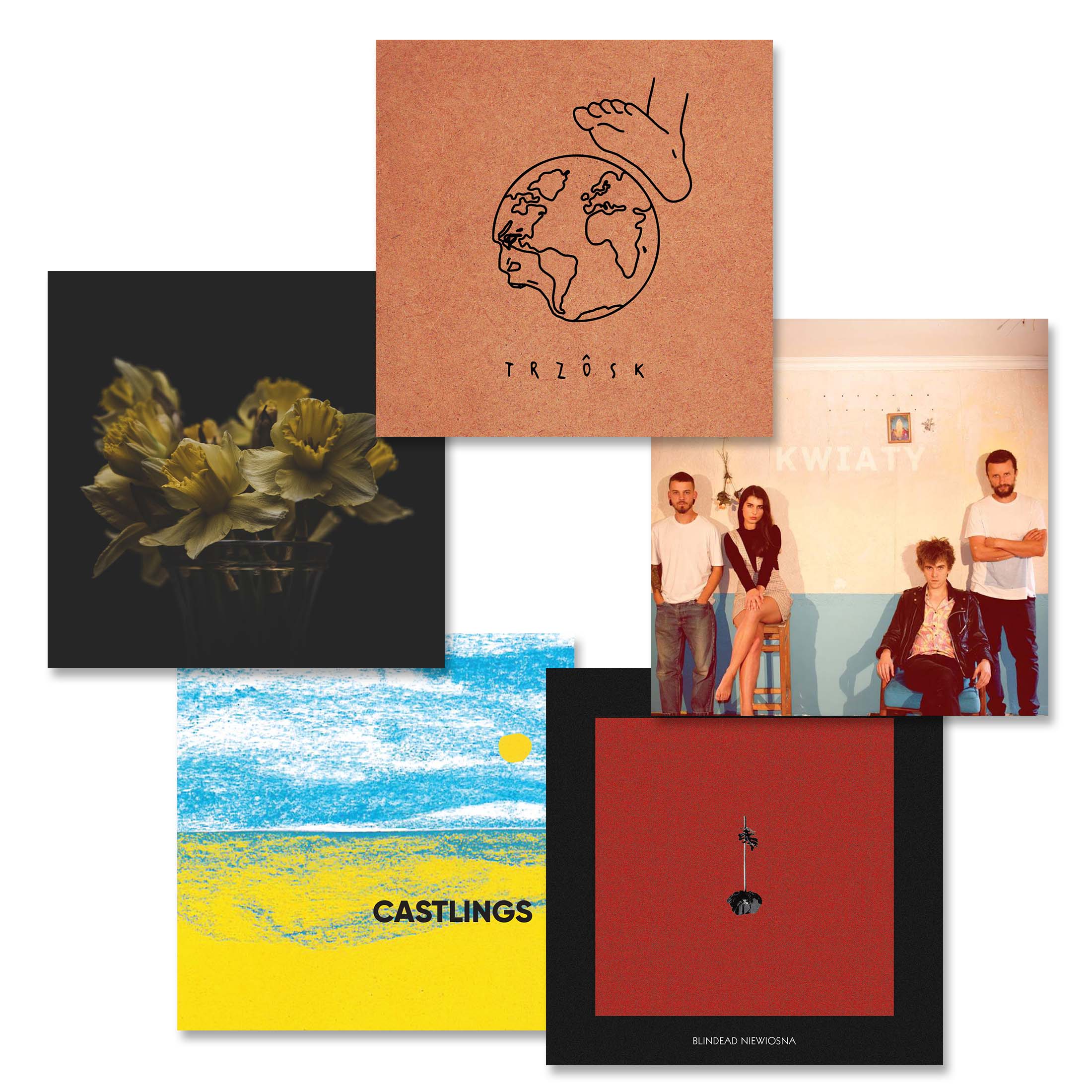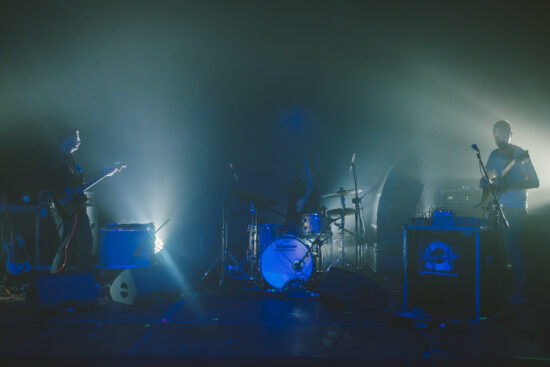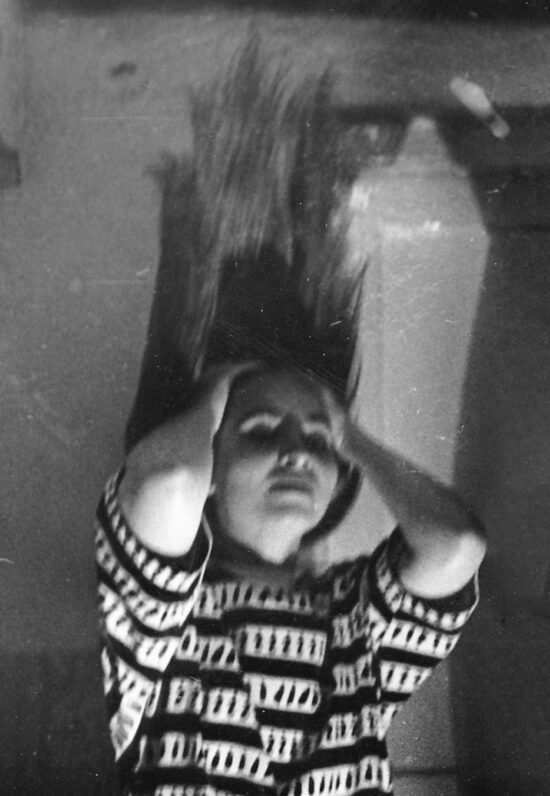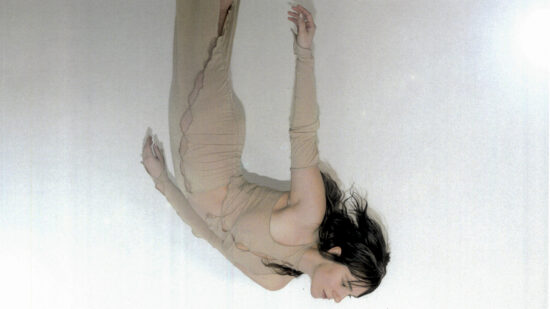Music from Tricity is never predictable: times of shortage are followed by sudden abundance. Spring has yielded a crop of records in very different genres. I’ve chosen five guitar-based bands: both heavy and light, song-based and instrumental. Here they are, in non-random order.
Translation: Aleksandra Szkudłapska
Castlings, Castlings EP
Castlings is yet another project fronted by Kuba Kozak meant to transport warm, surf-rock love songs – an ideal soundtrack for a summer trip to the seaside – onto Polish soil. There’s a rock’n’roll feel to the tracks, nice-sounding guitars and a pleasant rhythm section. There’s also the slightly squeaky, but cool voice of Oliwia Walewska, which adds flavour and freshness to all the tracks. Castlings would be a brilliant addition to the line-up of many summer events – they do have a flair for hits. They lock their ideas in neat, radio-friendly 2-3 minute formats, but nothing is fake or pretentious here. I’m reminded of Kozak’s previous band, The Esthetics, who regrettably split up after releasing just a couple of EPs, offering the first glimpse of his preferred casual, yet inventive style. This seems even better, though: nimble drums are interspersed with guitar solos, and lyrics about seaside crushes and love stories. Nothing original, you might say, but it makes for a really good listen.
Blindead, Niewiosna
This album is quite the contrary: from the sphere of light we move to the heavy stuff. On the one hand, after Blindead’s recent tribes and tribulations, one is tempted to go easy on them, on the other hand, though, it’s hard to make allowances for authors of such records as Affliction XXIX II MXMVI or Absence. They describe themselves as a project currently formed by just three people (Mateusz Śmierzchalski, Konrad Ciesielski and Bartosz Hervy), only occasionally enlarged by other musicians. On Niewiosna, this is Nihil from Furia, which sparks interest in the album – which has its good and bad sides. Good, because his voice is an interesting addition to the band’s heavy sound – bad, because it steals the attention from the rest of them. The music part loses out here; I often got the impression it was merely an accompaniment for Nihil. The tracks often drag on mercilessly; too much form, too little content. Blindead are out of strength, and when they decide to land a punch, it’s making me sick for all the wrong reasons (e.g. “Ani lekkomyślnie, ani bezboleśnie” with distorted vocals and keyboards in the background). One may distil the essence from the album, but is then left with very little material – and I’d really have expected more from a band of that calibre.
Pył, Pył
The shadow of the past is also hanging over Pył. When Ampacity were at the peak of their game, with good prospects for the future, they split up. In a sense, Pył may be regarded as its continuator, although the line-up features only two-fifths of the aforementioned group (Piotr Paciorkowski and Wojciech Lacki) plus the drummer of Marksman (another now non-existent band), Przemysław Głowacki. Their eponymous debut album combines various threads, usually in short forms: “Boy No Power” is modern Ampacity-style prog rock, “Rhei” is spatial and pulsating post rock, while “Niedźwiednik 1” is something much heavier still, in the second part counterpointed with sax and keys. “PTSD” sounds interesting too, and the last “aste”, which goes in the direction of yass, but these turns of musical direction seem quite incoherent and do not sound convincing as a whole. When the trio build tension, they can’t seem to hold it together and slow down – and I, the listener, lose interest in following through with the story. The finale is the most interesting, I’d say – casual, light, yet full of meanings. Previous tracks seem to be all about looking for an appropriate form and building on ideas from the musicians’ previous bands.
Kwiaty, Kwiaty
Kwiaty have taken quite a while to release their debut album (you won’t find them on Bandcamp, like the other bands from this review). They had the songs ready back in 2017 (on Soundcloud!), a year later the album could be bought at their shows, but had to wait until now for an official release. The quartet meanders between various moods: “TLK” is a dreamy, impressionist journey, while “Honda” is a brilliantly mastered punky explosion. Maja Andrzejewska is endowed with more interesting vocals than the singer of Castlings, and shows the various timbres of her voice – her singing is usually of the dreamy, sensual kind, but she’s capable of poignant shouts too. The rest of the band (bass-drums-guitar) do not lag behind, which is brilliantly heard in the aforementioned “Honda”, but also in many other moments played in an entirely different style, like when they’re drawling out sounds in “Na wydmach”. Kwiaty are a little neurotic, emotional, subtle, but sometimes as expressive it hurts, like in the spatial riff found in “Koniec wakacji”. Their songs are not easy to crack, which is perhaps why they’re so full of character, sometimes even verging on impudence (the buzzing, unbridled “Pogoda”!). The lyrics, too, are memorable and very decent compared to many other Polish-singing bands.
Judy’s Funeral, Trzôsk
I’ve been waiting for a new album by Judy’s Funeral for ages, though in the meantime they did share one track for the Nowe idzie od morza compilation four years ago (sic!). Trzôsk means noise in Kashubian, but anyone looking for more Kashubian tropes on the record will probably be disappointed. Judy’s Funeral use it to spark associations centred around a multiplied reality, a conflict between nature and civilization, but also to firmly – though not literally – place themselves in the local context (the only motif related to Gdynia may be found in ”Strach się bać”). The trio beautifully delivers their heavy sound (the instrumental “Kraina radości”), but are also capable of punk, impulsive lightness: in the title track or the aforementioned “Strach się bać” (brilliant!), when Marcin Lewandowski is singing, the hi-hats are flapping, and guitar effects add colour to the melody – or in “Kropla”, with its heavy wailing by Piotr Piórkowski. Trzôsk is a refreshing blend of cold wave and noise, full of potential hits, packed with intriguing, unconventional lyrics. One of the best sets of guitar songs Tricity has seen for years, and definitely required listening in the context of other Polish releases of 2019.




